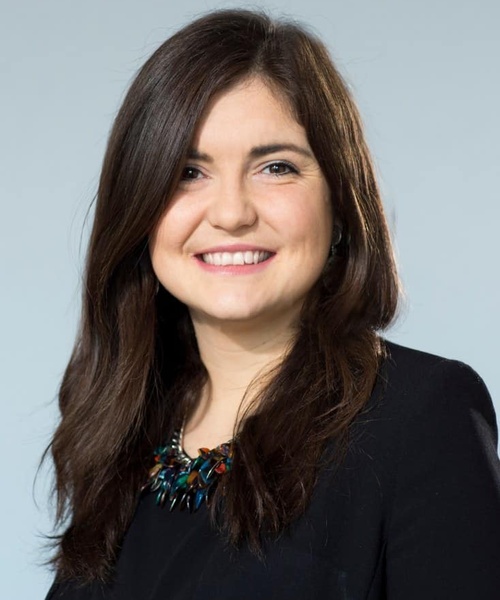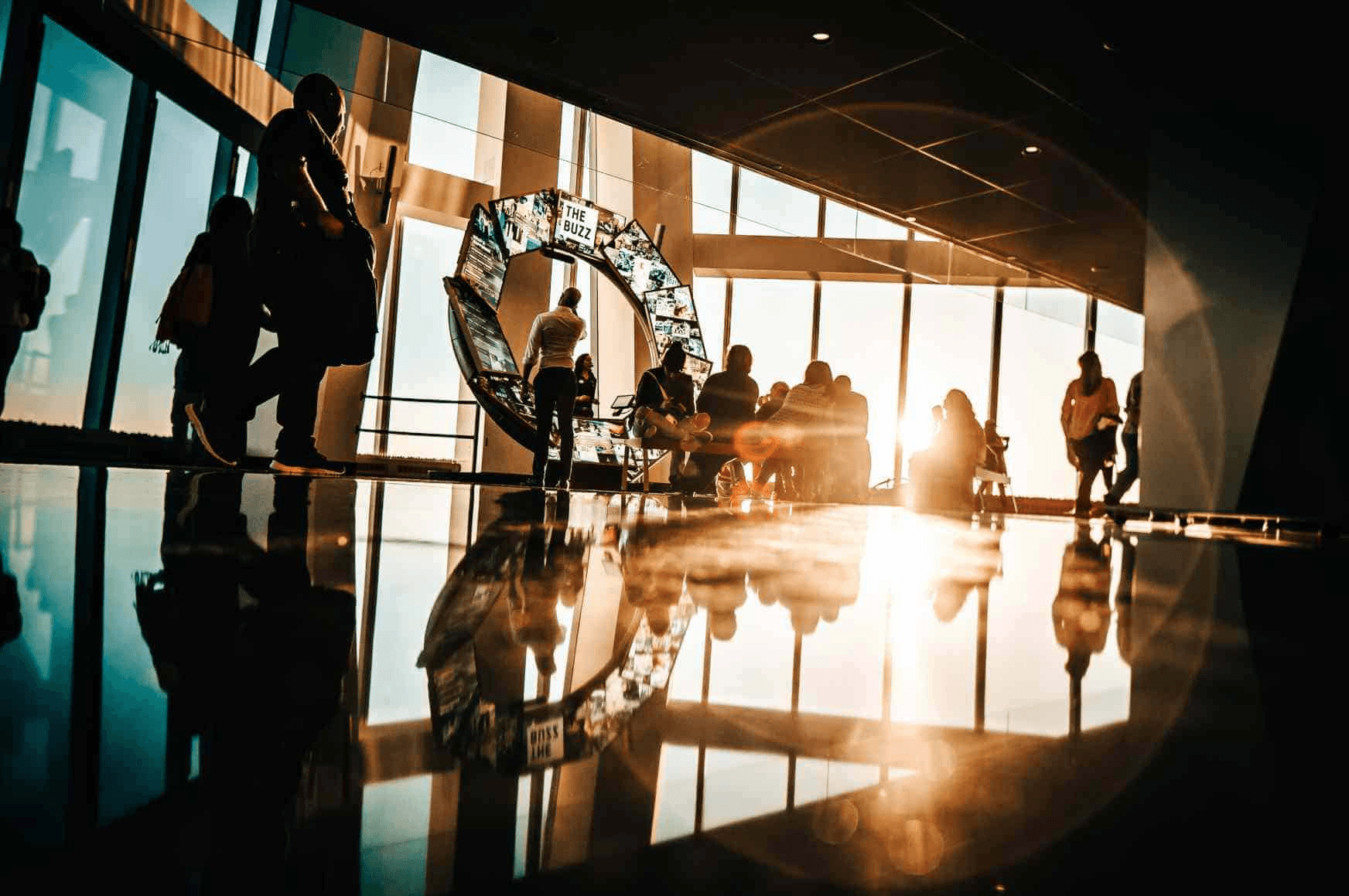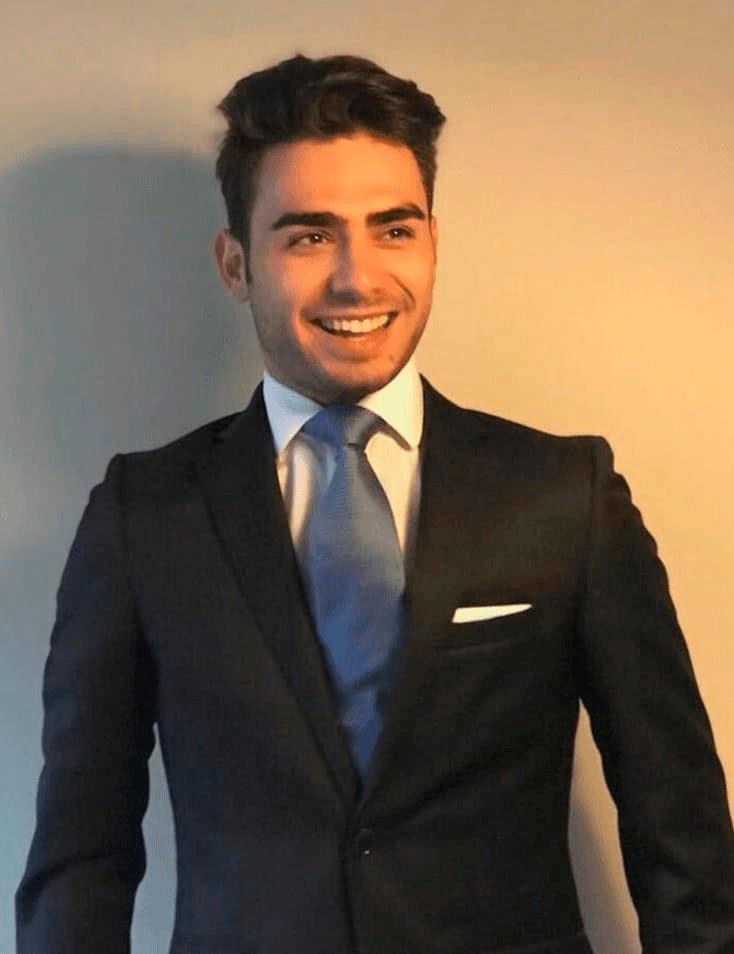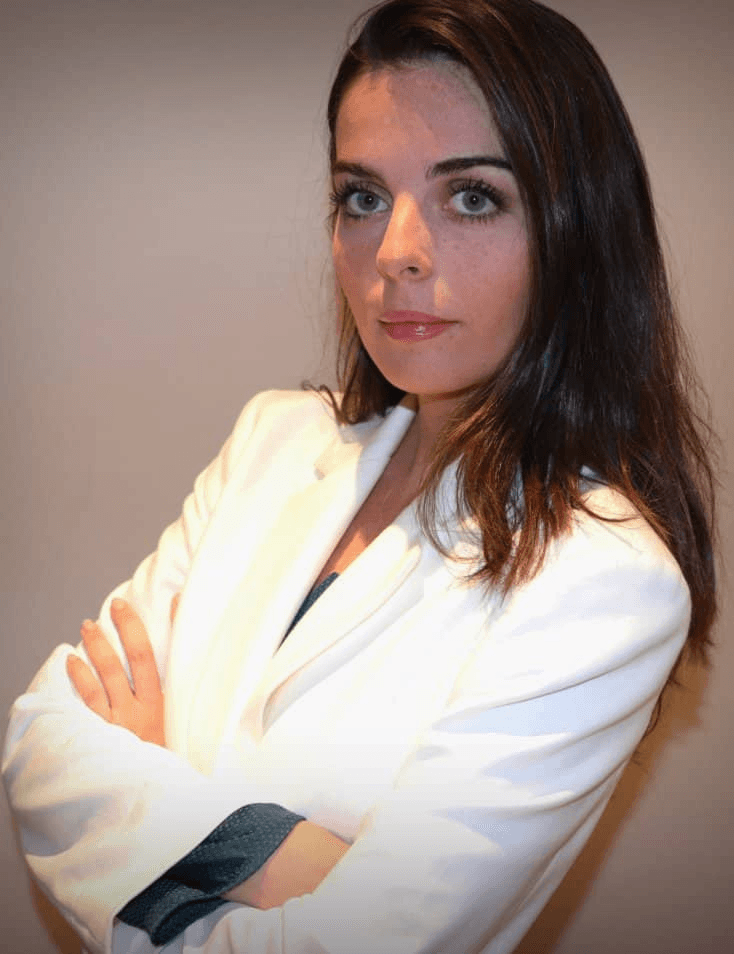
Nieves Bayón Fernández
Nieves Bayón is an alumna of IE University and is now in the Double Master in Acceso a la Abogacía y Asesoría Jurídica de Empresas program at IE Law School. During her time in IE, she has grown as a professional and has discovered that there’s plenty to learn outside of books. Her hobbies include tennis, traveling and reading. In her free time she also loves to spend time with her family and friends. Her plans for the future consist of working as a lawyer specialized in European Union competition law, and passing on her knowledge as an associate professor.

"IE Law School forces us to go beyond national principles and adopt a creative and practical vision of law."
Where are you from? Have you lived abroad?
I’m Spanish and I’ve had the good fortune of traveling abroad several times over the course of my life. My longest stay was in the United States. There I learned to reach outside my comfort zone, but also discovered a world different from the one I knew for the first time, in a culturally diverse environment where people’s values and traditions were different from the ones I grew up with. I’ve lived in the following countries:
United Kingdom: I lived with an English family for three weeks in 2009.
United States: I decided to spend my junior year of high school in the U.S. I lived with an American family and I went to an American school from 2010-2011.
The Netherlands: In 2015, I spent six months abroad.
Germany: I interned at a German company for two months in 2015.
Brussels: The following summer, in 2016, I interned at a firm specialized in European Union competition law.
Why did you decide to study law?
I wasn’t always sure that I wanted to study law. During my last year of school, I decided to do the social sciences track since I was drawn to it and I didn’t see myself doing the health sciences or technological track, even though I liked them. In economics, we touched on aspects of law related to business and workers, and it was then that I started to become interested in law.
Finally, I decided to do a double degree in law and business administration and, from my first year in college, I knew that I preferred law. I couldn’t explain why—it was a calling. I liked studying law and I enjoyed learning. That’s why I opted for law and decided to do the double Master in Abogacía y Asesoría Jurídica at IE Law School.
What stands out from your experience (both professional and personal) at IE Law School? Are there any stories you’d like to share?
I’ve done my bachelor’s and my master’s at IE, and I feel I can firmly say that IE Law School has helped me grow as a professional and as a person over the last six years.
In a professional sense, IE Law School has taught me that through hard work and effort, you can reach the goals you set for yourself. It doesn’t matter how impossible something may seem; if you fight for it, you can do it. Also, IE Law School has taught me to go even further and has pushed me to grow as a professional, emphasizing the importance of getting involving in initiatives outside of your studies, like moot competitions, the LawWithoutWalls program or the Judicial Clinic, and to do internships to learn how a real firm works. This practical experience is also present in our courses, since the majority of professors also have ample experience and a professional path we can learn from.
On a professional level, IE Law School has taught me that there’s plenty to learn outside of books. When I started college I was very focused on my grades. However, over the course of my time at IE, I’ve learned that it’s possible—and far more enriching—to be responsible and get good grades while also enjoying the international environment that an institution like IE offers and growing in the personal sense, in a way that gives you time to both fulfill your obligations as a student and enjoy the little moments with the people around you. IE really emphasizes the need to take advantage of these opportunities, learn from others and be an open and respectful person. One of the things that most stands out about IE is the talent of your colleagues and friends. Throughout this master’s program, I’ve met incredible people who will achieve everything they’ve set out to do, and I’ve made friends who I know will be there my whole life.
Also, I would like to highlight the support that I received at IE Law School when it came to making important decisions, and I know that this support has always been there for me, and for what’s best for my future.
What areas of law interest you and why?
The areas of law I’m most interested in are European Union law and competition law.
In my first summer of college, I took a course in European Union law in Germany. After that, I knew that I wanted to dedicate myself to European Union law. This area of law fits well with the international profile that I’ve developed at IE Law School. It’s hard to explain why I’m so drawn to this branch of law. Much like my career choice, I think it was a calling. It’s an area of law that I’m passionate about and that I love studying and reading about. I think I’ve reached a point where even my peers notice how much I love this branch of law: I smile when I hear the word “directive,” which is pretty extreme.
The same thing happens with competition law. I think there are two reasons why I like it so much. In the first place, it allows me to put into practice not only my knowledge of law, but also part of what I learned in my business administration program, since a great part of competition law is based on analysis of markets. Secondly, It’s an area of law that’s applied in a similar way in different jurisdictions, with a large European Union law component, and is decided case by case, which is also one of my favorite parts of law.
Do you think that IE gives you a more global and comparative view of law?
Yes. On the one hand, the undergraduate program has given me a totally global and comparative view of law, since I did the specialized comparative law program at IE Law School. On the other hand, I believe that the Master in Acceso a la Abogacía has rounded out this vision and complemented it with a Spanish perspective. In particular, through the case method, IE Law School forces us to go further than national principles and adopt a more creative and practical vision of law. Also, I think that doing the bilingual version of the Double Master in Abogacía y Asesoría Jurídica in IE Law School has allowed me to maintain this global and comparative focus, since certain courses, like international tax laws, were taught from a more international point of view.
Have you had any experience abroad? What did you learn from the experience about culture and the way people see law?
Yes, I’ve been abroad. Apart from my exchange in the Netherlands, I have done internships in Germany and Brussels.
Two things stand out from my internship in Germany: (i) the internationality of law and the sometimes surprising possibility of practicing law in another country; and (ii) the similarities between the principles of law. Regarding the first point, I would point out that in Germany I was working at a firm’s Spanish Desk and saw that Spanish law is practiced in other jurisdictions, since a German client with a house in Majorca wanted to be advised by a lawyer in Germany who knew both German and Spanish and who also had an office in Spain. Regarding the second point, in the variety of tasks I had to do in Germany, I observed that although it’s true that the content of law changes, the principles it’s based on are the same and the function of a German lawyer and a Spanish lawyer ends up not being so different.
What most stands out from my internship in Brussels is the possibility of living and working in an international environment. The firm I worked for in Brussels was specialized in European Union competition law, and many of the lawyers came from other countries. I believe that there’s great value in incorporating people of different nationalities into the same work team, since this gives you a more comprehensive vision of a problem and helps you reach the best solutions.
What was the greatest challenge you faced during this experience?
The biggest challenge during my experience in Germany was understanding legal texts in German. Although I did quite a lot of work in Spanish, I also had to work in German. Having to read a document in German was perhaps one of the greatest challenges I faced. Also, I was working with a branch of law that I hadn’t studied yet in college, so it was a real challenge to understand the concepts in German when I still didn’t understand them in the laws of my own country.
In Brussels, my greatest challenge was overcoming my fear of presenting in front of people I knew were far more knowledgeable than me. Knowing that the professionals who surrounded me were experts in the field made me look for an area of interest for them in which I could tell them something new. It was a challenge, but I think the presentation I did with one of my internship colleagues managed to pique their interest.
In the end, all challenges are overcome. What’s important is not being afraid and not forgetting to enjoy the moment.
If you’ve done an exchange, what advice would you give to future exchange students?
I did my exchange in Tilburg, in the Netherlands. My exchange was six of the best months of my life and I made friends that became my family during my time there. As advice to future exchange students, I would say don’t be afraid of getting out of your comfort zone, and enjoy each moment. It’s a time when you can not only study at a university that’s different from yours, but also meet new people, think differently and learn about a new culture. I think it’s very important to go with an open mind and to take advantage of the time, since it flies by.
What are your hobbies and interests? What do you like to do in your free time?
As for hobbies, I love playing sports, especially tennis, and traveling and reading. In my free time, I love spending time with my family and friends. I enjoy the small things in life, like having a coffee with friends while we laugh and talk; for me few things in life are better than that.
What are your plans upon completing the Máster de Acceso a la Abogacía? What are your professional goals?
In September I’ll go to Brussels for the internship required for the Master, to work in an area I’m really passionate about. Also, I would love to specialize in European Union law, so I’d love to study ay the College of Europe in Bruges and have the European experience so many people have told me about. In the long term, I’d like to practice law as a specialist in European Union and competition law and teach as an associate professor as a way to share my knowledge just like my professors did for me.
How do you think technology has influenced the practice of law? And how do you think it will affect you (and your generation) in the near future?
I think the impact of technology on the practice of law is very positive. I don’t think that technology will diminish the workload for lawyers; instead it will change the tasks lawyers have to perform, allowing us to dedicate our time to more intellectual tasks. Everything that can be automated will be done by a machine, while the tasks that really require us to think and innovate in law will still be done by humans.
I believe a lot of added value will come from having a database of decisions made in the past in a way that benefits our clients, but I think lawyers will still have to do the work of differentiating the case at hand from past ones and finding a personalized solution that most serves their client’s interests. I believe that the most important thing for my generation is to make technology useful, and not to reject it, since rejecting technology would only cause the industry to become obsolete. I believe that technology will require a greater capacity to learn, since we’ll have to learn how to learn. Also, new, more technical knowledge of law and soft skills won’t be enough. We’ll also need digital skills that allow new generations to make the most out of the cost-saving and increased efficiency that will come along with new technologies.

